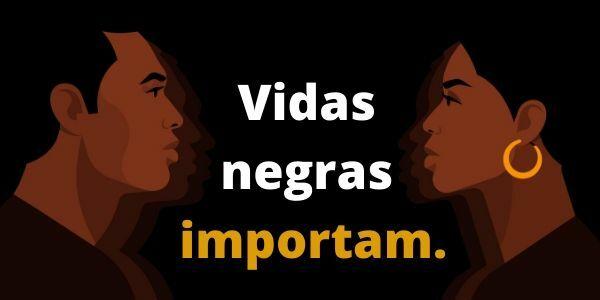Preconception it's the act of judging something or someone before knowing the object of judgment. We can apply the term prejudice to the most diverse everyday situations, such as prejudice formulated by that type of food that you have not tried and judged by its appearance. However, the object of this text is prejudice in human relationships.
This prejudice happens in a variety of ways and for a variety of reasons: it can originate in skin color, religion, country or city of origin, physical appearance, gender, sexuality etc. Any form of prejudice in human relationships is harmful for the development of a just society, democratic and egalitarian.
Read too: Social minorities - part of the population excluded from the socialization process
meaning of prejudice
The word prejudice joins the prefix “pre”, which means previous, to the suffix “concept”, which refers to meaning or judgment. Prejudice is an abstract noun that designates the act of judging, that is, of issuing a judgment or a judgment about something before knowing oneself
what one is judged. Seeing a dish and considering it bad because of its appearance or because of previous experience with its ingredients alone is a form of prejudice. Looking at a person and judging him (positively or negatively) before meeting him is a kind of prejudice. Judging someone by the color of their skin, their gender, sexuality, social class, geographic origin, physical appearance, religion, comorbidities and disabilities, or any other trait, are also forms of prejudice that are harmful to society.
Prejudice and discrimination
Despite being socially linked, the terms prejudice and discrimination have different meanings. While prejudice is the pre-judgment, discrimination is the act of differentiating, of giving different treatment. Discrimination is the lack of equality or the manifestation of preferences, causing social divisions among individuals.
In that regard, discrimination can be a manifestation of prejudice.. Understand that prejudice is not always visibly discriminatory. Sometimes, discriminatory actions appear between the lines, with little visibility. This is the case of structural racism, which is not a form of racism wide open, but it causes small discriminatory actions against black people in everyday life, and this racism is often unconsciously propagated by those who practice it.
Separating, judging and qualifying are common actions in our daily lives, but they need to be carefully outlined when dealing with social relationships, so that they do not result in prejudiced actions. It is normal that we separate the people we want closer to us by affinity and affection. However, this separation should take place after the person's knowledge, and not for a prejudiced reason. In the end, discrimination based on prejudice is the final blow that hurts victims who suffer from racism, gay phobia, misogyny and other social ills.
Prejudice in Brazil
According to the Third Sector Observatory news agency, a survey|1|revealed Brazilian prejudice in four main axes, considered the greatest among the Brazilian people: racial prejudice, gay phobia, sexism and appearance prejudice (mainly fat phobia). They appear in the survey as often rooted and not overt.
The types of prejudice that are most evident are LGBT phobia, in which 29% of Brazilians in the sample declare themselves to be prejudiced, followed by religious prejudice (20% of respondents assume this way of thinking), and machismo, with which 7% of respondents identify themselves. It is worth remembering that religious prejudice is often related to racism, considering that most prejudiced attacks happen against practitioners of matrix religions African.
Among those who are not prejudiced, it was found that prejudiced phrases continue to be uttered by these people, which confirms the prejudice. 83% of respondents do not consider themselves prejudiced, but 73% admitted to having made a prejudiced or aggressive comment or phrase. The listing points out that the most frequent prejudice among Brazilians is machismo, with 61% of respondents agreeing with sexist phrases. Next, there is racism, with 46%, LGBTphobia, with 44%, and fatphobia, with 30%.
See more: Human Rights - category of basic rights guaranteed to all human beings
examples of prejudice
Prejudice can happen in a variety of ways. Some of them appear in our society more frequently, so they were listed:
• Racism: consists of prejudice against Indians and blacks (in the case of American countries, we must include indigenous populations in the account, because the color of your skin is a reason for racial prejudice in places where the privileges of the whites). The legacy of slavery and the exploitation of territories originally inhabited by their native populations generated this type of prejudice, which has persisted since colonization.
• Machismo, sexism or misogyny: consists of the prejudice caused by the establishment and maintenance of patriarchal power in society. It is the discrimination of women in various ways, from the most structural, such as the difference in pay and the greater credibility of men, to the most obvious, such as harassment, rape, the femicide and domestic violence.

• Religious intolerance: consists of prejudice motivated by religion. Traditional and dogmatic religious beliefs tend to defend the view of their laws and codes as universal. When people and institutions start attacking members of other religions, it becomes a form of prejudice. In Brazil, religious intolerance is strongly linked to racism as it mainly attacks people who profess their faith in African-based religions. In the world, the religious intolerance is strongly linked to anti-Semitism, practiced against people who profess the faith in Judaism and Islam.
• Xenophobia: prejudice against foreigners is also a recurrent form of discrimination. The feeling nationalist exaggerated and social crises tend to intensify it.
• Aesthetic prejudices such as fat phobia: society creates aesthetic standards, many of which are impossible for most people to achieve. The creation of aesthetic standards and ideals of beauty has accompanied humanity since ancient times. However, there is an intensification movement of this action that is part of a game of domination of the capitalist system, which, by imposing standards more and more incisively, also creates an industry of support services within reach of the so-called perfect body. Those who suffer most from it are people who are considered fat. Fat phobia psychologically affects the victim, causing stress, anxiety and lowering their self-esteem, in addition to encourage the appearance of compulsive behaviors and eating disorders, such as bulimia and anorexia.
• LGBTophobia: neologism created to include sexual prejudice to marginalized categories in our society, lesbians, gays, bisexuals, transsexuals and transvestites, lgbtphobia is the manifestation of prejudice and discrimination against this population. Based on traditional and religious morality, many people do not accept the fact that heteronormative behavior is not the only possible and existing, and do not accept the fact that LGBTQ people have their right to exist and to manifest their sexuality as much as heterosexual and cisgender people (who identify with the gender aligned with their biological body, would be the opposite of transgender).
• Prejudice against the elderly: the elderly population has also become the target of prejudice. They suffer so much from the disabling belief of others (who believe that older people are unable to perform tasks daily life, such as driving or working) and with exclusion from the labor market when they are not yet retired people.
• Prejudice against people with special needs: both physically and cognitively impaired, in addition to people who have disorders such as autism moderate or severe, suffer daily from prejudice. Discrimination against these people can occur as with the elderly, with the disabling belief of others and with a feeling of pity, as can also occur through isolation, fear and misinformation of people who avoid approaching disabled people.
• Prejudice by social origin: this form, so deeply rooted in Brazil, is manifested by financial elites against disadvantaged populations. This kind of prejudice nurtures a false sense of superiority of the rich against the poor, which results in the belief that the poor are inferior, prone to violence and have an obligation to be subservient. Brazilian TV comedy programs were able to capture this type of prejudice through characters such as the politician Justo Veríssimo, immortalized by comedian Chico Anysio, who used the catchphrase “I want the poor to explode”, and the cocky-rich Caco Antibes, played by Miguel Falabella in the comedy get out from below, who claimed to have “horror the poor”.
Grades
|1| Check the data by clicking on here.
by Francisco Porfirio
Sociology Professor
Source: Brazil School - https://brasilescola.uol.com.br/o-que-e/o-que-e-sociologia/o-que-e-preconceito.htm

